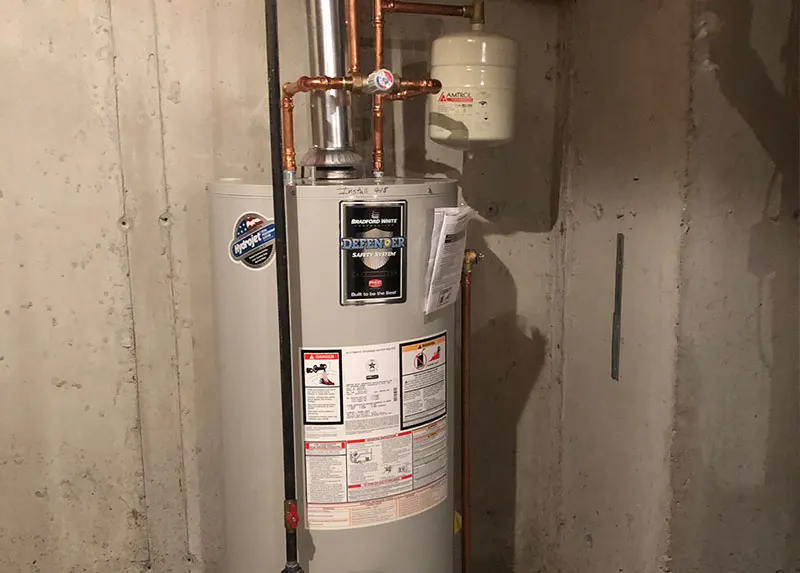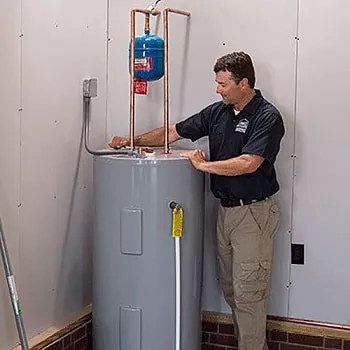Fast and Reliable Pipe Repair to Fix Leaks and Reestablish Functionality
Fast and Reliable Pipe Repair to Fix Leaks and Reestablish Functionality
Blog Article
Total Guide to Water Heating SystemInstallation and Replacement
Understanding the intricacies of water heating system setup and substitute is vital for home owners seeking to ensure efficiency and dependability in their warm water supply. From choosing the appropriate type and size to carrying out a smooth installation process, a number of aspects need to be considered to avoid common challenges. This overview will certainly give you with the necessary steps and insights to navigate the complexities of this home enhancement task, while likewise emphasizing essential upkeep techniques that can extend the life of your system. As you discover these facets, you might locate on your own reassessing your existing arrangement and recognizing locations for renovation.
Kinds of Water Heating Units
When thinking about hot water heater setup and replacement, it is vital to recognize the different sorts of water heaters available in the marketplace. One of the most typical kinds consist of tank water heating systems, tankless hot water heater, heat pump water heating units, and solar water heaters.
Container water heating units are typical systems that save a specific volume of hot water, making them easily available when required. They are normally less pricey upfront yet might sustain greater energy expenses over time as a result of warmth loss. In contrast, tankless water heating systems offer warm water as needed, eliminating the demand for storage. They are power reliable and can save space, yet their preliminary costs are normally greater.
Heatpump hot water heater use electricity to transfer warm from the air or ground to warm water, offering considerable power cost savings however requiring more area and details installation conditions. Solar water heating units harness solar energy to warm water, supplying an environment-friendly option with potential long-term price financial savings, although they often require a backup system for cloudy days.
Understanding these alternatives guarantees notified decisions regarding installment and substitute, satisfying certain needs and choices.
Selecting the Right Size
Selecting the appropriate dimension for a water heating unit is vital to make sure optimal performance and efficiency. A system that is too tiny will certainly struggle to fulfill family demands, bring about irregular warm water accessibility and raised power intake. On the other hand, a large hot water heater can result in unnecessary energy waste and greater utility bills.
To establish the appropriate size, consider the home's peak warm water usage. This can be determined based upon the number of owners and their typical warm water requirements. A family members of four may need a water heating unit with a capacity of 50 to 80 gallons, depending on the use patterns, such as synchronised showers and laundry.
Furthermore, analyze the recuperation rate, which gauges how rapidly a heating system can replenish warm water after it has been utilized. For tankless versions, focus on the flow rate, determined in gallons per min (GPM), to ensure it meets the family's synchronised need.

Installment Process Introduction

Following, the old device should be separated and eliminated, taking care to comply with neighborhood codes and laws concerning disposal. When the old unit is out, the brand-new hot water heater can be placed in place. This step entails linking the water supply lines, making certain that all fittings are safe and secure and leak-free.
After establishing water links, it's important to connect the power supply, whether electric or gas, complying with the maker's directions diligently. When all links are made, the system ought to be loaded with water, and the power can be transformed back on. Lastly, it is necessary to look for leakages and make certain the water heating unit is working correctly before completing the installment process.
Usual Installation Errors

Another constant mistake is disregarding to follow regional codes and regulations. Stopping working to follow these criteria can not only bring about safety dangers but might likewise result in costly fines or the demand for costly reinstallation. Furthermore, incorrect airing vent is a vital concern. Inadequate ventilation can trigger unsafe gas buildup, presenting serious health dangers.
Falling short to safeguard links or utilizing the wrong kind of fittings can lead to leakages and water damage. By preventing these typical installation blunders, house owners can ensure their water heating system operates safely and effectively, optimizing performance and long life.
Maintenance Tips for Long Life
Appropriate upkeep of a water heating system is necessary for its longevity and optimum performance. Normal assessments and servicing can prevent pricey repair work and expand the home appliance's life-span. Begin by checking the temperature level setup; it must generally be established between 120 ° F and 140 ° F for ideal power efficiency and security.
Every 6 months, flush the storage tank to get rid of sediment build-up, which can harm home heating performance and trigger deterioration. To do this, switch off the heater, connect a tube to the drain valve, and let the water run till more it is clear.
Anode rods must be inspected yearly and changed when they are worn away. These poles aid protect against tank rust by bring in harsh elements in the water.
Additionally, inspect the pressure safety valve on a regular basis to guarantee it is functioning properly. This shutoff is important for protecting against too much pressure buildup within the tank.
Finally, consider scheduling a professional maintenance check every few years for extensive assessments and maintenance. By sticking to these upkeep pointers, home owners can significantly enhance the efficiency, safety, blog here and lifespan of their water heaters, guaranteeing dependable warm water for years to come.
Verdict
In verdict, correct installment and upkeep of hot water heater are vital for making sure efficiency and longevity (gas leak repair). Choosing the suitable kind and dimension, adhering to installation standards, and preventing common mistakes dramatically add to optimal efficiency. Routine upkeep checks and expert maintenance help sustain functionality and avoid pricey fixings. By understanding these essential elements, house owners can accomplish a trustworthy warm water supply while decreasing prospective issues connected to hot water heater procedure.
Comprehending the details of water heater setup and substitute is essential for homeowners looking for to ensure effectiveness and dependability in their warm water supply.Tank water heating units are standard systems that store a certain volume of warm water, making them readily offered when required. In contrast, tankless water heaters supply warm water on need, removing the need for storage space. Selecting a water heating unit that is either as well tiny or also huge can lead to inefficiencies, resulting in insufficient warm water supply or extreme energy usage.
By recognizing these essential aspects, property owners can accomplish a reliable warm water supply while minimizing potential issues related to water heater operation. plumber Denton.
Report this page